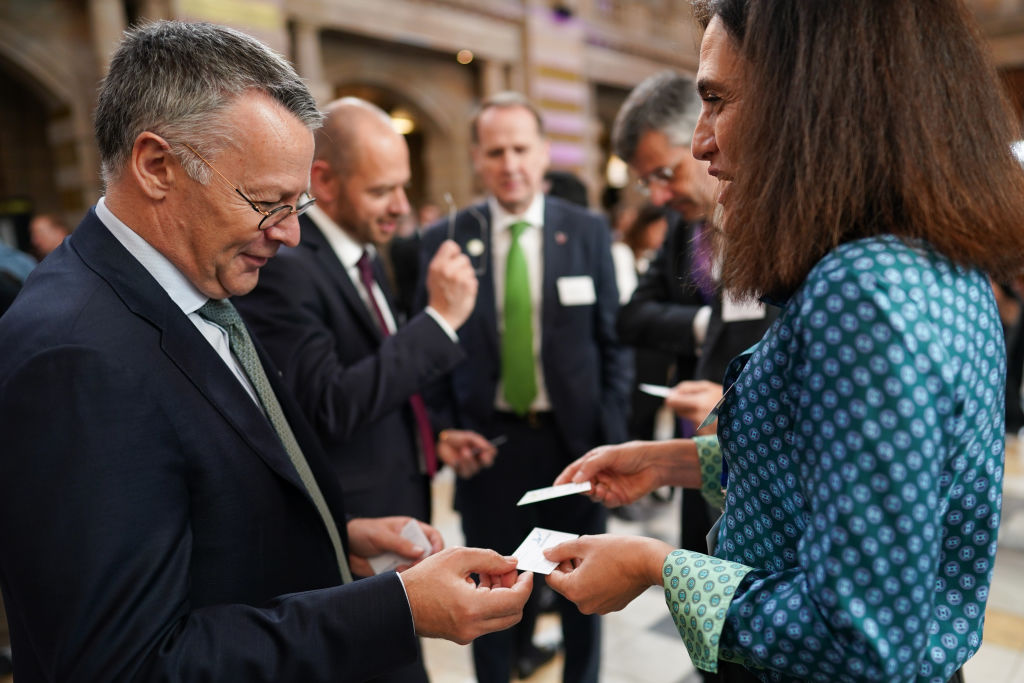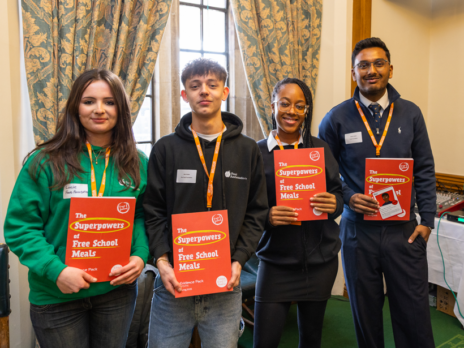
It was curiosity about who my fellow passengers would be, as much as my desire to minimise my carbon footprint, that led me to take the “climate train” from Amsterdam to Glasgow for Cop26.
The train was full of young activists with a lot of passion and genuine concern about the future. I was in the climate finance carriage, where Liset Meddens from Fossil Free Netherlands announced that one of the world’s biggest pension funds, ABP, will stop investing in oil and gas – after listening to the many teachers, medical staff and civil servants whose retirement savings they look after. “We are the leaders – the politicians and businesses at Cop are the followers,” she proclaimed. On the leg to Glasgow I sat next to one of the few passengers older than me. He told me he had never really held down a job and that supporting Extinction Rebellion was a way to make up for lost time. As we pulled into Glasgow, I couldn’t help but chant along with “What do we want? Climate justice! When do want it? Now!” to the waiting pack of international press.
We parted ways, and I jumped into a parallel universe: the Blue Zone. Heads of state and CEOs in suits with entourages in tow; indigenous people in traditional costume; NGO staff like me who make up the thousands of “non-party” stakeholders observing the negotiations. All of us bringing our own perspectives and aiming to influence the decisions being hammered out. Some have been calling it the “how to” Cop – we’re not expecting one glorious moment of Paris-style victory but rather every decision that takes us in the right direction is a win. For me, Cop26 started in February when we sent an open letter from business to President Biden calling for net zero by 2050 and then another from around 800 companies to the G20 calling for an end to fossil fuel subsidies and coal among other key policies.
In Glasgow I’ve been running the Business Pavilion for the We Mean Business Coalition. “All in for 1.5ºC. Are you?” is emblazoned across the walls, in front of which countless individuals have taken selfies and VIPs have been interviewed by the media. I was glad to see that people like our strapline and share our desire for a liveable planet for future generations.
I’ve met many fascinating people. Like Martin Pei from SSAB – the Swedish steel firm leading the way on fossil fuel-free steel and working with car companies like Volvo to help them decarbonise their supply chain; he brought a piece of it, produced with fossil-free electricity and hydrogen – a glimpse of the future. Or Mahendra Singhi from Dalmia Cement in India, who explained why collaboration is essential to decarbonise the cement sector, and how the millions of cement users need to take action but often don’t have the budget for big decarbonisation plans.
At one event we brought eight US senators together with a dozen CEOs. It was great to hear them agree to keep pushing each other on climate action, carbon pricing and innovation. I explained that the rest of the world is counting on US climate leadership, including my fellow Dutch(wo)men. I also joined a panel with company CEOs on Article 6 of the Paris Agreement – all about carbon markets and investment in emission-reduction projects. Steve Howard, who co-founded the We Mean Business Coalition ahead of the Cop in Paris six years ago, navigated the discussion’s complex extremes, from the need for clear global rules to industry solutions to make cows fart less. I remembered the concerns of the activists from the train: that carbon markets allow companies to keep polluting as long as they pay. But the truth is, if we get the carbon market rules right, it will prevent exactly that and instead channel investment into low-carbon solutions in communities that need it most. Overall, I hope that the government negotiators hear what progressive businesses are saying and take confidence to increase their ambition. We want them to hear that business is already taking meaningful action in line with keeping 1.5ºC within reach. We want them to hear that business wants the right decisions in Glasgow to improve accountability and accelerate business action to transform our economies.
I’ve realised that Cop is not a destination in its own right. Tackling climate change is like a long train journey: it has multiple stops along the way, different passengers and many conversations, and the occasional delay or fallen tree on the rail track. But my overriding sense is that more and more people are getting on board. We all have the same destination in mind and share the conviction that our collective wealth of talent, passion, ingenuity and insight is what will get us there.
Sophie Punte is the managing director, policy, of the We Mean Business Coalition



